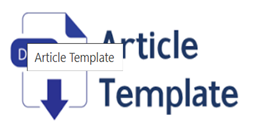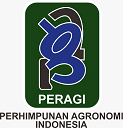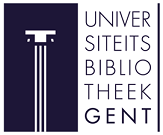Focus and Scope
Agro Bali : Agricultural Journal is an open-access and peer-reviewed scientific journal that contains research articles, theoretical studies, and scientific papers on agriculture including agronomy and crop science, agricultural engineering and mechanization, agricultural economics and management, plant breeding, biotechnology, food science and technology, land resources, remote sensing, plant pathology and pest management, microbiology, virology and bacteriology, organic agriculture, ecology and ecophysiology, physiology and nutrition, post-harvest technology, soil sciences, soilless culture, tissue culture technology, phytoremediation, and water management.
Period of Issuance: March, July, and November
Section Policies
Articles
Peer Review Process
Agro Bali : Agricultural Journal reviewing policies:
Reviewing Process of Manuscripts
Each manuscript submitted to this journal will be reviewed by at least two peer reviewers under a double-blind review system. In this process, the identities of the authors and reviewers will be kept confidential, ensuring that neither party is aware of the other's identity. This approach aims to maintain objectivity and integrity in the manuscript evaluation process.
Decisions from reviewers are a top priority for editors to make decisions. The time reviewers are required to complete a round review process is three weeks. Generally, prospective reviewers will be selected based on their reputation and expertise suitability. The decision for publication, amendment, or rejection is based on their reports/recommendations. After being reviewed, there will be four kinds of editor decisions based on reviewers’ recommendations:
> Accept Submission: The submission will be accepted without revisions.
> Revisions Required: The submission will be accepted after minor changes have been made.
> Resubmit for Review: The submission needs to be re-worked, but with significant changes, may be accepted. It will require a second round of review, however.
> Decline Submission: The submission will not be published in the journal.
However, if Editor(s) or Reviewers consider a manuscript unsuitable for publication in this journal, a statement explaining the basis for the decision will be sent to the authors after the submission date after the pre-evaluation step.
Revision of Manuscripts
Manuscripts sent back to the authors after revision should be returned to the Editorial Office without delay according to the given deadline date.
The revised manuscript document files should be uploaded to the Online Submission Interface (https://ejournal.unipas.ac.id/index.php/Agro/index) in the "Upload Author Version" from the Review task window in the Author window.
The revised document files should include at least:
- One (1) file of "Revised Manuscript file" according to The Template-based format (MS Word file) (indicated blue-color texts in the highlighted revised sentences), and Notes/Response to Reviewers Comments below reviewer comment on the manuscript file.
Publication Frequency
Agro Bali : Agricultural Journal published thrice (March, July, and November) and Special Issue (if any) every year.
Open Access Policy
Agro Bali : Agricultural Journal provides immediate open access to its content on the principle that making research freely available to the public supports a greater global exchange of knowledge.
The journal is an open-access journal, meaning all content is freely available without charge to users or / institutions. Users are allowed to read, download, copy, distribute, print, search, or link to full-text articles in this journal without asking prior permission from the publisher or author. This is following the Budapest Open Access Initiative.
Archiving
This journal utilizes the LOCKSS system to create a distributed archiving system among participating libraries and permits those libraries to create permanent archives of the journal for purposes of preservation and restoration. More...
Agro Bali : Agricultural Journal
Agro Bali: Agricultural Journal is an information media that contains articles from research, theoretical studies, and scientific writings on agriculture including agrotechnology and agribusiness published in March, July, and November.
Publication Ethic
PEER REVIEWER
Peer reviewers are required to provide recommendations to help authors to improve the quality of published manuscripts and editor in determining the editorial policy, under their respective expertise.
1. Willingness
Peer reviewers should inform the editor about the willingness to do a review of the manuscript to be published. If unwilling, peer reviewers must notify the editor.
2. Confidentiality
The reviewed manuscript is a confidential document. Communication with other parties without the author's permission is prohibited.
3. Standard Objectivity
Peer reviewers must take hold of the principles of objectivity and avoiding personal criticism against the author of the manuscript during the review process. All comments must be accompanied by clear and supportive suggestions.
4. Reference Clarity
Peer Reviewers are recommended to provide information to the authors of the research with the literature, or relevant case studies which have not been cited, having a substantial similarity or overlap with the manuscripts reviewed.
5. Conflicts of Interest
Peer reviewers are not allowed to use unpublished manuscript material for personal use without the prior written consent of the author, under any circumstances.
The information and ideas contained in the reviewed manuscript are confidential and should not be distributed or used for personal gain.
If having a conflict of interest for reasons of competition, collaboration, or other relationship with the author, institution, or company involved in publishing, peer reviewers are not permitted to evaluate the related manuscript.
EDITOR
1. Publication Decision
Decision-making of the published manuscript is the liability of the editor based on the policies and guidelines of the editorial board as well as based on compliance with legal requirements, such as not containing any information that harms others or containing slander, copyright disputes, and plagiarism. Communication with other editors or peer reviewers is acceptable to support the decision-making of the publication of the manuscript. Issuance decisions cannot be made by an editor based on personal considerations.
2. Fairness
Editors must be able to evaluate a manuscript based on its scientific content regardless of race, gender, sexual orientation, religion and belief, ethnicity, nationality, or political philosophy of the authors.
3. Confidentiality
All information contained in the manuscript is confidential and should not be distributed except to the author, peer reviewers, prospective peer reviewers, editors, and publishers concerned.
4. Conflicts of Interest
The editor is not allowed to use the unpublished manuscript material for personal use without the prior written consent of the author, under any circumstances.
The information and ideas contained in the text which is in the peer-review process are confidential and will not be distributed or used for personal benefit.
In case of having a conflict of interest for reasons of competition, collaboration, or other relationship with the author, institution, or company involved in publishing, the editor is not permitted to evaluate the related texts. Thus, another editor board member should be involved in determining the issuance of the manuscript.
Editors must ensure that all parties involved in the review process and the publication of the manuscript declare a conflict of interest in the publication of a manuscript, as well as make corrections if a conflict of interest is revealed after the manuscript is published. If necessary, the editor can take appropriate action, such as publishing editorial statements or retracting the manuscript.
The share of non-peer-reviewed written by the editor should be differentiated and easily identifiable in the scientific periodicals.
5. Involvement and Collaboration in the Investigation
Reports related to actions that do not comply with the ethics of publishing are justified, even many years after the manuscript was published. The report must be addressed by the editor. Editors should contact the author and establish communication with the institution or entity related to the report. Correction, retraction, or other editorial notes should be published as a form of official response to the report complaints.
6. Fatal Error on Published Manuscript
If the editor or others encountered a fatal error and inaccuracies in the published manuscript, the editor should immediately notify the author and request his/her correction or retraction.
7. Advertising
Agro Bali : Agricultural Journal emphasizes its commitment to independence and editorial integrity by not accepting advertising in its publications. This decision ensures that all content presented to readers is free from external influences, allowing for the delivery of objective and reliable information on agricultural issues. Consequently, Agro Bali focuses on providing high-quality research and scientific findings without any pressure from commercial interests.
AUTHOR
1. Writing standard
2. The author should comply with the following standards for preparing the manuscript to be published in the scientific periodicals:
Presenting accurate (using controlled and specific protocols/ procedures), reliable, repeatable, précised, and validated data.
Presenting sufficient details and references to ease other parties to repeat the research steps in the text.
Differentiating personal opinion from an accurate and objective scientific statement based on references.
3. Data Access and Retention
Access to raw data should be granted for editorial review.
4. Originality and Plagiarism
The manuscript should contain the research of the original. Any citation or adaptation of the previously published author, research should be clearly stated. All forms of plagiarism should be subjected to rejection.
"Every manuscript submitted to this journal will be checked for plagiarism using Turnitin. The plagiarism check will be conducted twice: first, when the article is submitted and ready to enter the peer review stage, and second, prior to publication. The similarity index must be below 20% for the manuscript to be considered for publication."
5. Multiple, Repetitive, or Simultaneous Publication
Multiple, repetitive, or simultaneous publications in other publications are objectionable things. The manuscript containing the same information cannot be submitted or published in other scientific periodicals.
6. Sources of Information and References
Information from personal communication such as conversations, interviews, correspondence, and discussions or activities that are confidential as a manuscript jury or grant application or research funding schemes, should not be used without written permission from the original source or author.
7. Writing Agreement
The main author and all co-authors must approve the final version of the script and signed the available submission form of the scientific periodicals.
8. Conflict of Interest
Any indication of conflict of interest should be disclosed as clearly as possible. All financial supports, working relations, consultation, resources ownership, honoraria, paid expert revelation, patent application/registration, grant, or another funding scheme should be clearly stated.
9. Fatal Errors in the Published Manuscript
The following actions should be taken if the writer encountered a fatal error in the published manuscript immediately contact the editor of the publisher.
10. Withdrawal of Manuscripts
The author is not allowed to withdraw submitted manuscripts because the withdrawal is a waste of valuable resources that editors and referees spent a great deal of time processing submitted manuscripts and works invested by the Publisher.
Suppose the author still requests withdrawal of his/her manuscript when the manuscript is still in the peer-reviewing process. In that case, the author will be required to pay a withdrawal penalty of 500,000 (IDR) per manuscript to the Publisher. However, it is unethical to withdraw a submitted manuscript from one journal if accepted by another journal.
The withdrawal of the manuscript after it is accepted for publication, and the author will be punished by paying 1,000,000 (IDR) per manuscript. Withdrawal of the manuscript is only allowed after the withdrawal penalty has been fully paid to the Publisher.
If the author doesn't agree to pay the penalty, the head of the author's institution will be sent a letter notifying them of this unethical behavior.
11. Retraction
The papers published in the Agro Bali: Agricultural Journal (ABAJ) will be considered to retract in the publication if :
- They have clear evidence that the findings are unreliable, either as a result of misconduct (e.g., data fabrication) or honest error (e.g., miscalculation or experimental error)
- the findings have previously been published elsewhere without proper crossreferencing, permission, or justification (i.e., cases of redundant publication)
- it constitutes plagiarism
- it reports unethical research
The mechanism of retraction follows the Retraction Guidelines of the Committee on Publication Ethics (COPE), which can be accessed at https: //publicationethics.org/files/retraction%20guidelines.pdf.
Publication Frequency
Agro Bali : Agricultural Journal is published in March, July, and November.
Article Processing Charges
Article Publication Charges (APCs): USD 250 (Rp. 4,000,000). Additional charges may be billed for language improvement of accepted paper, USD 75-100 (IDR 1,000,000-1,500,000). If your manuscript is accepted for publication, you will be asked to pay an Article Publication Fee to cover publication costs. The APCs are limited to 10 pages per article. There will be an additional charge of IDR 100.000 per page for up to 15 pages.
Online Submissions
Already have a Username/Password for Agro Bali : Agricultural Journal?
Go to Login
Need a Username/Password?
Go to Registration
Registration and login are required to submit items online and to check the status of current submissions.


























